Alireza Zakani, the mayor of Tehran and a presidential candidate, revealed details of a controversial municipal contract with China during the ongoing election debates.
This announcement comes despite his previous insistence on the confidentiality and security of the contract, to the extent that even members of the Tehran City Council claimed to be unaware of its conclusion and specifics.
The controversy over the contract's secrecy led to a tense city council meeting on April 28, where some members protested by leaving the hall in Zakani's presence.
During the election debates, new aspects of the contract, worth two billion Euros and previously classified as confidential by the mayor, were disclosed.
This raises questions about why, if clarification was not an initial obstacle, Zakani resisted revealing the contract's details in the first place.
The Story of Confidential Municipal Contract
The controversy surrounding the confidential municipal contract began with the appearance of unusual advertising billboards by Tehran Municipality in metro stations.
These billboards, which promoted the purchase of Chinese buses, caught the attention of citizens.
The advertisements highlighted the benefits of buying Chinese buses, such as their lower price, high production capacity, reduced gasoline consumption, and contribution to alleviating air pollution.
In doing so, they criticized the slow production speed of domestic car manufacturers.
This municipal campaign supporting foreign production, specifically Chinese, surprised citizens and drew criticism from state media.
News agency ILNA labeled the billboards "self-deprecating" and criticized the municipality for humiliating domestic production, especially in a year designated to support local industry.
Beyond the public relations fiasco, the purchase of these buses was shrouded in financial ambiguities, leading to numerous accusations against the municipality, particularly Alireza Zakani.
Critics questioned the lack of transparency and raised concerns about potential financial misconduct.
In response to these objections, Zakani consistently cited the confidentiality and security of the contract as the reasons for not disclosing its details.
Tehran Municipality's Controversial Contract with China
In October last year, Tehran mayor Zakani and his delegation traveled to China amid discussions about using Iran's oil sales to clear Chinese goods.
Upon returning, Zakani revealed on a TV program that he had signed contracts with the Chinese in the environmental and public transportation sectors.
The agreements included the construction of 791 metro carriages and developing metro lines 8 and 11 in collaboration with Chinese partners.
Additionally, a memorandum of understanding was signed to procure 1,000 electric single-cabin buses, 1,000 gas-powered double-cabin buses, 10,000 electric taxis, 10,000 electric vans, and 100,000 electric motorcycles.
Despite the significant scale of these contracts, Zakani refrained from disclosing further details, including the names of involved companies.
This lack of transparency raised concerns.
Yashar Soltani, a journalist, published documents on his website highlighting a two-billion-euro contract between Tehran Municipality and the Chinese involving "Shahr Bank."
The opacity surrounding these agreements has sparked questions and controversy, particularly regarding the financial implications and the identities of the Chinese companies involved.
Tehran Municipality's Urgency in Finalizing the Contract with China
One peculiar aspect of the Tehran Municipality's two billion euro contract with China is the strong insistence on expediting the signing process, bypassing standard formalities.
This urgency is explicitly highlighted in the official negotiations of the city council.
Lotfullah Forozandeh, the financial and economic deputy of Tehran Municipality, emphasized the critical nature of time, stating, "For us, even an hour is an hour. We request that this bill be approved so that we can take advantage of the golden opportunity of currency, order registration, and support of government institutions."
Adding to the urgency, Mehdi Ahmadi, the CEO of Shahr Bank, stressed the importance of concluding the contract quickly.
Controversy over Tehran's Bus Purchase Contract
A significant ambiguity in Tehran Municipality's two-billion-euro contract with China revolves around the selected contracting company.
Despite numerous potential Iranian and Chinese partners, the Tehran mayor chose a Chinese company primarily known for its construction and engineering work to procure electric buses.
Documents published by journalist Yashar Soltani reveal that the contracted Chinese company is "Poly Overseas Engineering Co., Ltd."
A review of the company's history indicates that its primary expertise lies in road, construction, tunnel, bridge engineering, and building materials.
This choice raises questions, as Poly Overseas Engineering Co., Ltd. lacks experience or expertise in manufacturing electric vehicles and clean transportation solutions.
The company tasked with addressing Tehran's traffic congestion and air pollution problems by providing electric buses and other electric vehicles is not specialized in this field.
The decision to engage such a company for a crucial project has sparked controversy.
Critics argue that this could jeopardize the effectiveness of the project and the efficient use of Iran's national funds, casting further doubt on the transparency and motivations behind the contract.
Dubai Company's Role as Intermediary
An alarming aspect of the Tehran Municipality's two-billion-euro contract is the selection of a Dubai-based company as Shahr Bank's representative despite its lack of substantial financial credibility.
This company has no verifiable documentation confirming the existence or transactions of its accounts.
Although its entire purchase history since inception amounts to only two million euros, it has been thrust into a pivotal role in a multi-billion euro transaction with Tehran Municipality.
Lack of Guarantees
One critical shortcoming of the contract with Chinese entities is insufficient guarantees to ensure its execution.
In international trade agreements, such guarantees are crucial to securing the seller's obligation to deliver goods as agreed, including provisions for damages or alternative solutions in case of non-compliance.
The contract fails to include any provision for alternatives if China's Ministry of Commerce does not approve guarantees.
Examining Cost Claims and Transparency Issues
Zakani asserted that purchasing Chinese buses is cheaper than purchasing domestic products, which sparked considerable debate and scrutiny.
Zakani claimed significant savings of 97,000 euros per bus by opting for Chinese manufacturers.
He said that Iranian car manufacturers priced their electric buses between 316,000 and 347,000 euros, whereas similar Chinese buses cost around 250,000 euros, plus additional costs for the municipality.
However, experts in the automobile industry have challenged these claims. They pointed out that companies like Iran Khodro Diesel have priced their electric buses at around 17 billion tomans, which translates to less than 262,000 euros at the prevailing exchange rate of approximately 65,000 tomans per euro.
This contradicts the municipality's assertion of 320,000 euros for the cost of domestically produced electric buses.
Moreover, concerns were raised about after-sales services, which are typically absent for Chinese products, and delayed payments to Iranian manufacturers.
Critics argue that these factors, alongside potential quality discrepancies, should be more comprehensively considered in the cost comparison.
Regarding transparency, accusations have also been leveled at Tehran Municipality for lack of clarity in its dealings.




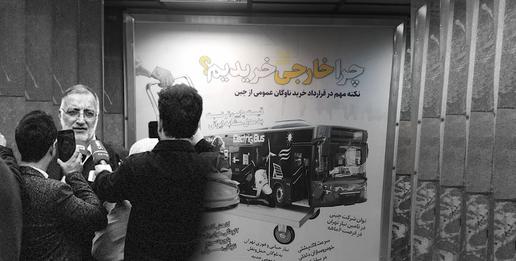
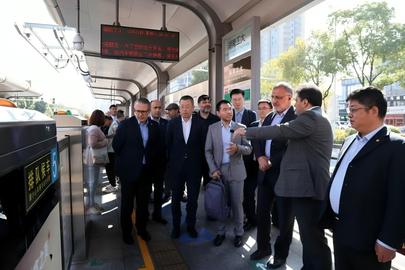
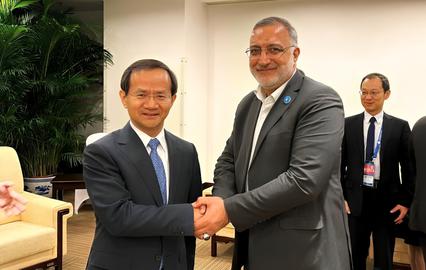









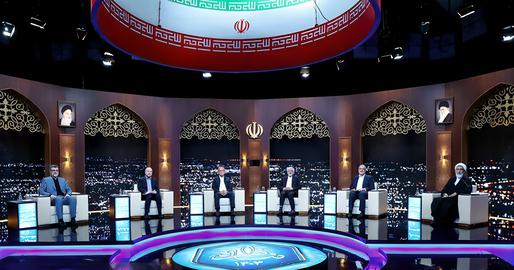



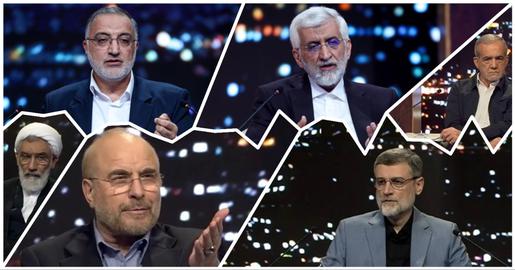





comments